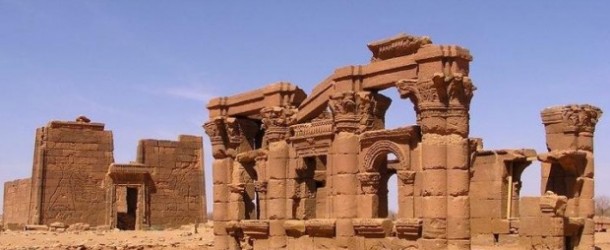Transit from Desert Africa to Tropical Africa – Mali and Niger
This region is spared of Islam-Christianity standoff and violent struggle between bearers of different civilizations. It nevertheless is quite sensitive, and separatist sentiments within different tribes are prominent in terms of the threat to stability. Fate of the Tuareg is the most delicate issue for the region.
90 % of Mali that is surrounded by the Islamic countries is Muslim. There is no obvious religious strife related conflicts. In recent years, however, few destabilizing aspects have emerged that potentially jeopardize the stability in the region. First is the increasing role of terrorist organizations that use the name of Islam. Second is the aspiration of Tuareg to establish an independent state.
Tuareg are viewed as a threat while they can also be instrumental in the intervention of foreign forces into the region. Tuareg are scattered through Niger (1.7 million), Mali (1.4 million), Algeria (over 1 million), Burkina Faso (600.000) and Libya (560.000). Still, this figures are relative because being the people of the desert, the Tuareg recognize no borders. The entire desert area is their habitat, and only some reasons may compel them to abandon the boundaries of a certain country. Tuareg are driven more by the idea of free life than the independent state, although the issue of Azawad state is being speculated upon lately. In any event, these people recognize geographical spaces with no frontiers.
It was no accident that in the wake of failed coups in Niger and Mali, in 1990-1995 and 2007-2009, the Tuareg fled to Libya and merged with government troops there. After deposing of Muammar Gaddafi, Tuareg returned to Mali and almost caused this country to succumb to the Arab Spring.
In Mali, the region populated by the Tuareg makes up 65 % of the total area of the country while it accommodates only 10 % of the total population. That is to say, that in terms of the general proportion, the Tuareg do not possess significant clout in the country. However, the main issue is the intransigence of values. Tuareg attach enormous importance to women and women’s freedom, and, therefore, disagree with respective restrictions in Islam. One may come across a Muslim female Tuareg without a headscarf while males cover their heads. Literacy rate among women is also higher than the average country rate. Despite the involvement with such an armed group as “Ansar al-Dine” (“Defenders of faith”), generally, the Tuareg are disinclined to join extremist movements.
“Ansar al-Dine” – wing of “Al-Qaeda in the Islamic Maghreb”, have stepped up their presence in the country in recent years. Capitalizing on the military coup in the country in 2012, both forces have announced the establishment of a new state – “Azawad” in the north of the country. However, later on, rebel Tuareg with the “National Movement for Liberation of Azawad” and radical Islamists within “Ansar al-Dine” stopped cooperating with main differences stemming from the religious outlook. Tuareg are unhappy with “Ansar al-Dine” plans to build a Shariah laws-based state and ban non-Muslim humanitarian aid organizations. Eventually, it culminated in a France-lead military intervention in Mali in early 2013.
Some experts consider these events to be geopolitical games. Geopolitical moves are made to oust the Chinese that have just entered the region. It is by offering grants and soft loans that China aims to acquire a new market for its products and a new source of raw materials. Its main goal in Africa has been to attract the flow of raw materials. There is one aspect to the Chinese investments, however. They are enduring in the environment of stability. Conversely, they are less sustainable in times of turmoil and armed conflict. Apparently, that was the motive behind the current developments in Mali, pretty much like in Cote d’Ivoire where during the civil war France had supported one of sides that pledged to prevent Chinese investments.
It appears that the fate of Mali will be directly dependent on the geopolitical struggle between the big powers (China and France). For China, the current situation is acceptable while France stands ready to produce new political outlines in the event of growing Chinese clout in the country. France cannot afford to lose its positions in Mali. Immediate and unsanctioned by the UN military intervention in Mali was underpinned by that very reality. Although relative peace came in the wake of French intervention, political escalation may follow any moment.
Going from Desert Africa and Tropical Africa there is another country with a similar situation – Niger. Religious strife is not visible despite that country has a significant Christian community that makes up 20 % of the general population. Notwithstanding, main competition is based on geopolitical interests, and it has to do with the key role played by the Tuareg in the society. Similar to Mali, Tuareg are 10 % of the general Malian population, yet they are the majority throughout 2/3 of the total area of the country. After the uprisings of the 1990s, central government and the “Revolutionary Armed Forces of Sahara” signed a ceasefire in 1995. France, being the region’s main foreign player, is stepping up its military prowess to preserve political and economic interests.
Experts believe this was the motivation behind the intervention to Mali. According to “LePont”, France intends to deploy special troops to protect the mining facility and personnel of “Areva” – uranium producing company with 2600 employees on the ground and substantial investments in Niger. Niger is the world’s top fourth uranium producer and is the largest supplier of uranium to France that uses nuclear power plants to generate 75 % of its electricity. Thus, crossing from Desert Africa to Tropical Africa, the unfolding key rivalry is not about civilizations but geopolitics.
Dr. Arastü HABİBBEYLİ
Kaynak: Newtimes.az

























































